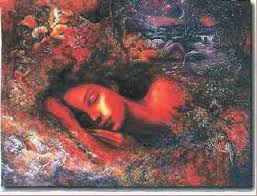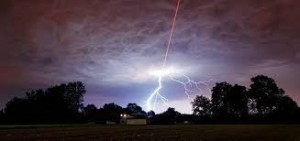Since our activities physically must be fitted into space-time framework, only a minimum of those probable events will physically occur.
Those that do are chosen with great discrimination, dreams serving as one of the methods by which we ascertain the desirability of any given probable act. There is basically no difference at these other levels of existence between waking and dream events. Creatively, then, we organize our experience in such a fashion, with the conscious mind as we think of it also carrying its own responsibility. Those events that we do not accept as physical ones, however, also exist and join their own organizations. They do not simply fall away from our experience, but serve as focus points for events that do not concern us directly, while indirectly they form a definite psychological background. To a certain extent they become the invisible medium of experience from which our own specialized activities emerge, so that their nature is implied in our own life — and so that our life is implied in those other frameworks.
To that extent the dream also serves as a drama of interweaving probabilities, a springboard from which events emerge in all directions. Each aspect of a dream, while having personal meaning, is also our version of a symbol that stands for a corresponding kind of event, but in a different level of reality entirely.
If we numbered each aspect of a dream, then each number would be represent itself in a different numbered system entirely. The surface numbers, or the familiar ones, would still serve to explain the dream in the context of our own world. As we live in an obvious physical universe, sharing in its reality, so each or us exists in a far vaster psychological or psychic universe — surrounded by, supported by, and part of psychic universe entities infinite in their variety. Our smallest action affects their reality, as theirs does ours. To some extent in the dream state we can perceive such entities more clearly, as at night the stars become more apparent, physically speaking. Psychological realities cannot be compared in terms of size, or bigger or smaller, for that validity and brilliance of each existence carries a personalized intensity so unique that it overshadows and such considerations.
The life of a star, the life of a flower, are entirely different in our terms of duration, size, and characteristics; yet each exists in a validity of experience that ultimately makes such comparisons meaningless. In the same way, it does not help to compare our own consciousness to one of star-like psychological or psychic properties. The psychological mobility of consciousness, however, allows for an inner kind of communication impossible to verbalize, an interlocking spiritual and biological language by which experience is directly transmuted. Many of our dreams therefore are translations of events occurring in other levels of the greater psyche.
There, events are not dependent upon time. We, on the other hand, must work with the time version of events. Dreams provide an elegant framework that allows us to break down timeless events, placing them properly in the context of our own world. This proper placements is quite dependent upon an inner knowledge of the “future.”
The dreams are often a synthesis of past, present, and future, where one main event is used as a focus point around which “present” events will be collected.




